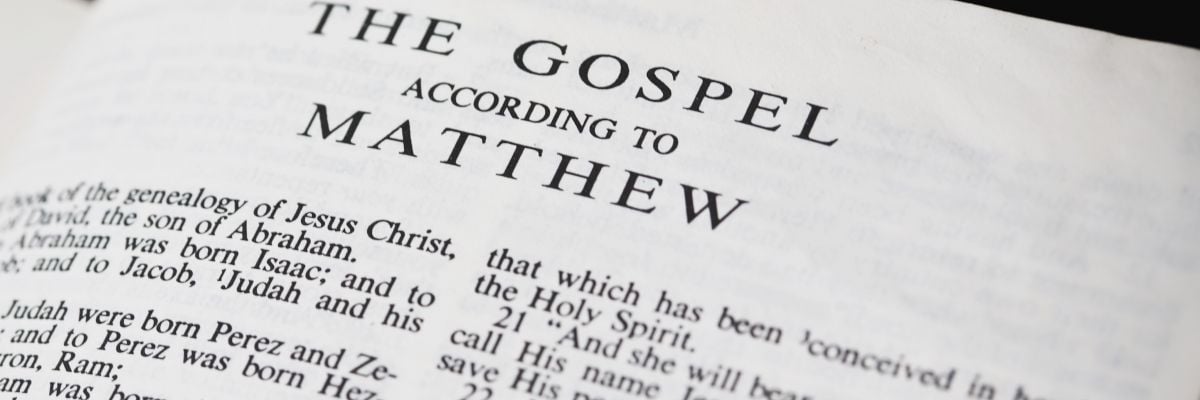
Question:
Answer:
This peculiar argument against the long-standing belief that Aramaic (or Hebrew) was the language in which Matthew originally composed his Gospel was first raised in the 16th century by the Dutch theologian and patristics scholar Desiderius Erasmus. He reasoned that, since there is no evidence of an Aramaic or Hebrew original of Matthew’s Gospel, it is futile to argue that the work originally appeared in Aramaic and was subsequently translated into Greek (as most patristics scholars hold).
This is not really much of an argument. It is an argument from silence and can be used just as effectively against the idea that the Gospel of Matthew was originally written in Greek, since there are likewise no extant originals of the Gospel in Greek. After all, the earliest manuscripts we have of any of the books of the New Testament are in Greek, yet not a single manuscript is an original. They’re all copies. From the mere fact of Greek manuscripts we can’t conclude that the originals must have been written in Greek. Yes, there may be a presumption of that, but not actually a proof.
Your Fundamentalist friend is wrong to assert there is no evidence to support the idea of an Aramaic original. In fact, the evidence is quite to the contrary. Since we have no autographs of this or any other New Testament book, it’s wise to look at what the early Church had to say on the subject. Catholic apologists, theologians, and Scripture scholars of the second through fifth centuries provide us with a wealth of information on this subject.
Around 180 Irenaeus of Lyons wrote that
Matthew also issued a written Gospel among the Hebrews in their own dialect, while Peter and Paul were preaching in Rome and laying the foundation of the Church. After their departure, Mark, the disciple and interpreter of Peter, did also hand down to us in writing what had been preached by Peter. Luke also, the companion of Paul, recorded in a book the Gospel preached by him. Afterwards John, the disciple of the Lord, who also had leaned upon his breast, did himself publish a Gospel during his residence at Ephesus in Asia. (Against Heresies 3:1:1)
Fifty years earlier Papias, bishop of Hieropolis in Asia Minor, wrote, “Matthew compiled the sayings [of the Lord] in the Aramaic language, and everyone translated them as well as he could” (Explanation of the Sayings of the Lord [cited by Eusebius in History of the Church 3:39]).
Sometime after 244 the Scripture scholar Origen wrote, “Among the four Gospels, which are the only indisputable ones in the Church of God under heaven, I have learned by tradition that the first was written by Matthew, who was once a publican, but afterwards an apostle of Jesus Christ, and it was prepared for the converts from Judaism and published in the Hebrew language” (Commentaries on Matthew [cited by Eusebius in History of the Church 6:25]).
Eusebius himself declared that “Matthew had begun by preaching to the Hebrews, and when he made up his mind to go to others too, he committed his own Gospel to writing in his native tongue [Aramaic], so that for those with whom he was no longer present the gap left by his departure was filled by what he wrote” (History of the Church 3:24 [inter 300-325]).
See also, “Were Any of the Gospels Written in Christ’s Own Language?“


